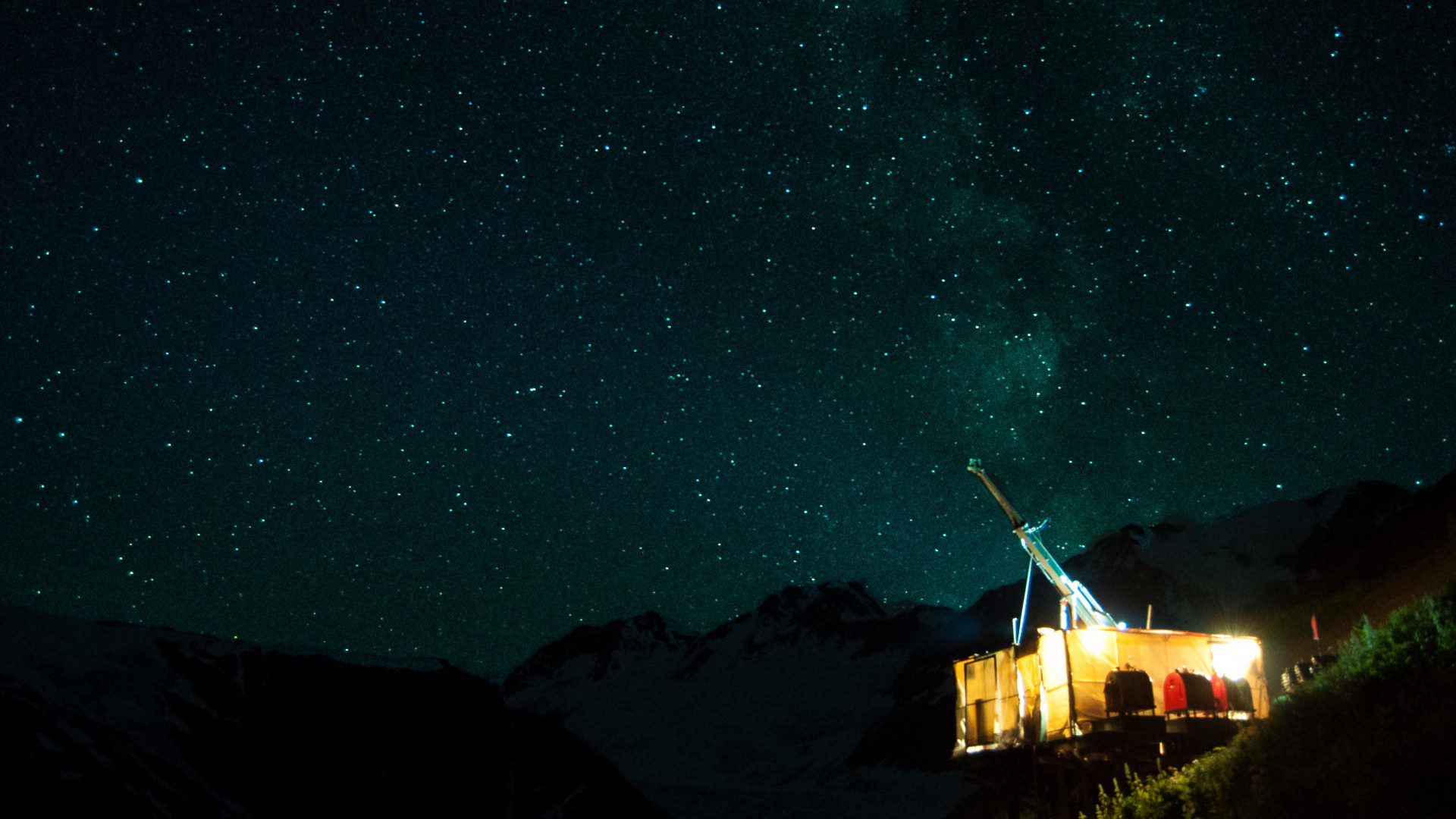In just over a decade, geologist, draftsperson and volunteer, Royanna Wild, has connected with thousands of people as an ambassador for our industry. Her outreach efforts and “exceptional meritorious service” was recognised in January 2018 when she was presented with the Gold Pan Award by the AME Board of Directors.
Royanna currently works as Corporate Lands Administrator at KGHM International, based in Sudbury. She has worked at various projects across Canada during her more than 25-year career and stepped up her volunteer efforts in the last 10 years help to address some of the misconceptions students and the public have about mineral exploration and mining. AME sat down with Royanna in August to talk about outreach, and her approach to connecting with people.
AME: How important is outreach in addressing the big challenges we are facing as an industry?
Wild: It’s so important that we represent our industry and try and get our message out, because so many times people don’t really understand our industry, and therefore are making decisions based on misconceptions of what we do, and that’s a part I find so challenging. It’s all about communication, and everything seems to come down to communication.
AME: What are some memorable questions you have fielded during your time as a volunteer?
Wild: Often, the tough questions are very specific and based on misunderstandings about what our industry is all about and how we actually impact people and the environment. A university student once asked me: “How come you can’t move a mine to a different location?” It was the simple fact of not understanding where a deposit occurs and how hard it is to actually find a deposit. Some people don’t understand that basic, simple concept. The fact that he was brave enough to ask that made me so happy because then I could sit and explain to him how geology works, and why things happen where they do, and why we can’t pick and choose a deposit’s location.
AME: What role can AME members play to help address these misconceptions?
Wild: Volunteering your time where you can. I think when we volunteer, we don’t necessarily understand the trickle-down effects of what we’re doing. We have a huge impact in the end, because, like the old saying goes, we’re planting seeds that grow into trees. You just don’t know what your efforts will grow into and I think, many times, they can become extremely significant.
AME: What advice can you offer to AME members who might be facing tough questions from the public?
Wild: You should always be honest. Stick to your facts and be gentle, nice, and kind. To me, those are really important. You don’t have to be rude or abrupt, just stick with facts and don’t exaggerate or overemphasize. Listen to people’s concerns and answer as best as you can. And if you can’t answer the question, let them know: never try to make anything up.
I find it’s useful to write down the question you can’t answer, and let the person asking the question know you’ll get back to them, either have someone else (an ‘expert’) respond to them or with a response that you received from somebody else. There’s multiple ways to deal with questions you don’t know. We actually know a lot more than we realize because when we’re part of our industry, we are, really, the experts in it. Keep answers to questions fairly simple and basic and try not to use too many technical terms.
AME: How can AME members find opportunities to volunteer that are the right fit?
Wild: For me, I’m looking for the volunteer opportunities that best suit my personality. Find what works best for you. If you’re not comfortable talking in front of a big crowd, don’t put yourself into that situation. Find where you can talk to people one-on-one, or with two or three people. I know some people who can walk into a classroom or speak in front of a big group of people. That’s not my comfort zone, so I find opportunities where I can do one-on-one or with two, or three, or five people. There are many volunteer opportunities out there.
People are often concerned about saying the wrong thing, and even I get to that point. If I don’t know something very well or in depth, I will often say, “I don’t know enough, but I will get an expert to talk to you about that.” Personally, I feel so rusty when it comes to a lot of my geology, because I don’t actively work in it all the time, or there’s a lot of times that I know personally, I feel uncomfortable talking about too many details.
Discovery Day at Roundup and the outreach programs run by the regional groups like KEG (Kamloops Exploration Group) are amazing events and opportunities where you can volunteer and connect with people. Often, we don’t often have that confidence in ourselves that we know enough to volunteer at these events. I think sometimes even just the basic facts and talking to people at events such as Discovery Day, opens so many doors, because it allows the public to understand a bit more about our industry, to ask more questions, and perhaps inspire them to do some more research, and see our industry from a slightly different perspective.
